Jews and Crime
LEONARD GREENSPOON
Creighton University Klutznick Chair in Jewish Civilization

siasm for the topic of this fall’s 34th Annual Symposium on Jewish Civilization, Chronicling Jews and Crime: From Law-Makers to Law-Breakers

LEONARD GREENSPOON
Creighton University Klutznick Chair in Jewish Civilization

siasm for the topic of this fall’s 34th Annual Symposium on Jewish Civilization, Chronicling Jews and Crime: From Law-Makers to Law-Breakers
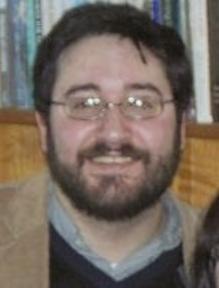
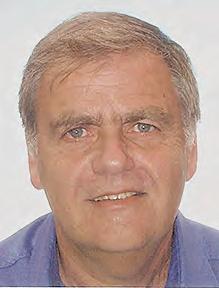
This year’s Symposium presenters come from as far away as Israel and as close as Crete, Nebraska. They teach at a variety of academic institutions from large public universities to small liberal arts colleges. Some are graduate students; others senior professors. What brings them all together is their knowledge of and enthu-
This event will take place on Sunday, Oct. 23, and Monday, Oct. 24.
With four venues—University of Nebraska at Omaha on Sunday morning, the Jewish Community Center of Omaha Staenberg Kooper Fellman Campus on Sunday afternoon, Beth El Synagogue on Sunday evening, and Creighton University on See Jews and Crime page 3Yonatan S. Miller
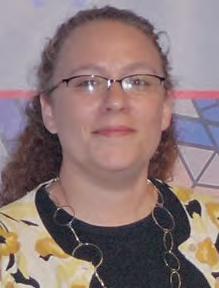
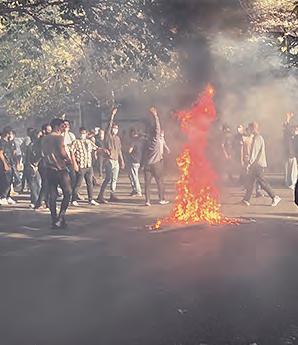
The 2022-2023 Beit Midrash (house of study) series begins on Wednesday, Nov. 9 at 7 p.m. in hybrid form – via Zoom or in the Wiesman Family Reception Room at the Staenberg

on Wednesdays through May 17 with breaks for holidays and some additional programming.

Omaha Beit Midrash was conceived over a lunch that Rabbi Brian Stoller of Temple Israel and Rabbi Steven Abraham of Beth El Synagogue shared in 2019. They set upon
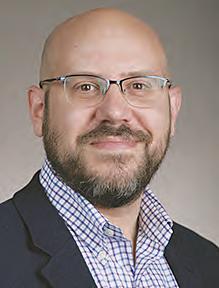


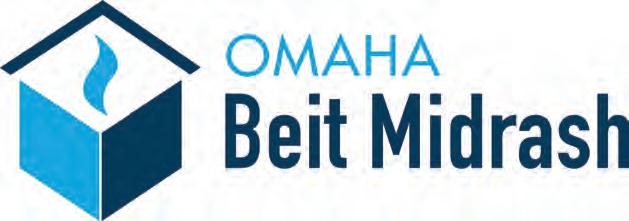
Omaha JCC. The Zoom link is available on the Jewish Federation of Omaha’s webpage, www.jewishoma ha.org by clicking on the sliding banner at the top. Sessions will continue

establishing a community learning experience that would extend beyond the “one and done” concept. Planning and organizing resulted in the first session coming to life in October of 2019. Even when Covid hit, Beit Midrash survived – even thrived – in the virtual land of Zoom. Dialogue with the clergy has been broad, deep, interesting, informative – and occasionally a bit controversial. We are hoping that with the anticipated increase of in-person participation this year, the discussions will continue to be equally spirited. We owe See Omaha Beit Midrash
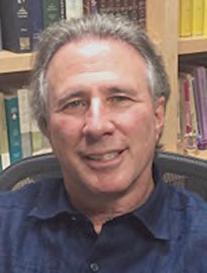
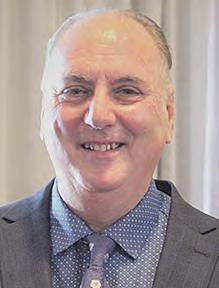
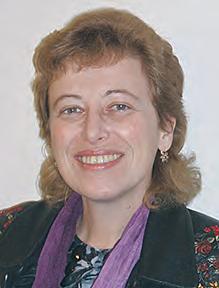
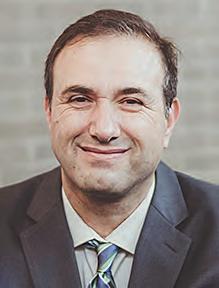
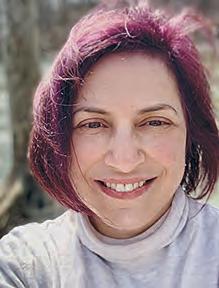
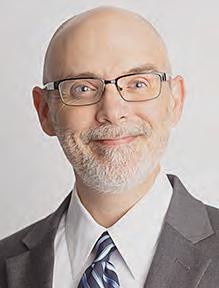
Late last fall I received a call from former Omaha resident, Rose Viny.
She introduced herself as the daughter of Holocaust survivors, Joe and Bluma Polonski. In the course of our conversation she began to tell me the amazing story of her father and his experience at Treblinka. She then asked if the IHE would be interested in showing a
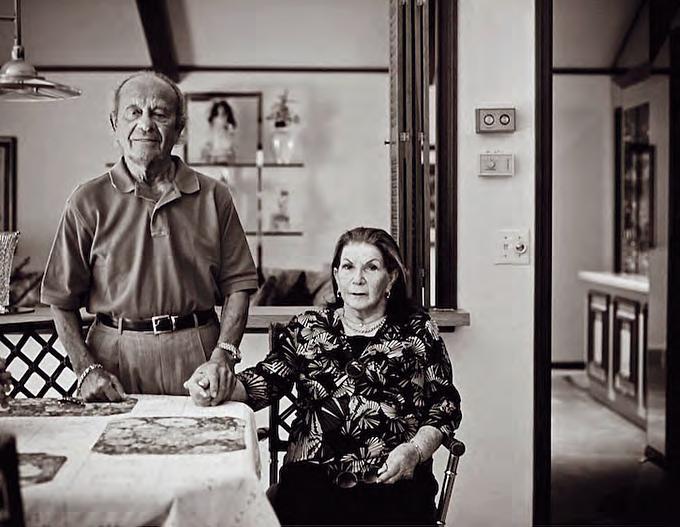
new movie that had just been produced and narrated by Holocaust educator and expert, Michael Berenbaum. So, with that in mind the Institute for Holocaust Education is honored to be able to show the movie, Escape from Treblinka: The Joseph Polonski Story, on Sunday, Nov. 6 at 2 p.m. in the Alan J. Levine Performing Arts Theater at the Jewish Community Center.
When speaking about her father, See Escape from Treblinka

Continued from page 1
Rose told me he had not spoken about his experience until they went to Treblinka in 2000. She said then you “couldn’t stop him from talking, because he had so much to say.”
Viny said her father had great insight into what his feelings were and how every moment counted in his life. He was a very private man, she said, but very studious, and was able to correct their tour guide on things such as where the train arrived at the camp.
“My father was almost like a wolf,” Viny said. “Walking around, showing us where the train stopped, where they took the dead bodies and where they had to take the clothes.”
Michael Berenbaum approached Polonski in 2012, one year prior to his death, and wanted to interview him and hear his testimony. Berenbaum said he felt that it needed to be heard and documented because Treblinka was a death camp with very few survivors, which means there were not many people who could provide testimonies on it.
“We captured a man, and we captured a life,” Berenbaum said when asked about his conversations with Joseph Polonski. “And it’s a life that has a story worth telling. So, the question always becomes, what do you have to work with? And then how do you work with what you have? That’s the story of life.”

It was a wonderful evening with nearly 200 people in attendance at Beth Israel Synagogue’s Tribute Dinner on Sunday, Sept. 18. The event honored the 23 men who served as presidents during Beth Israel Synagogue’s tenure on 52nd Street. Past presidents in attendance at the dinner included Joe Kirshenbaum, Dr. Jim Wax, Dr. Paul Shyken, Donald Gerber, and Dr. David Kohll. Video messages from Bob Oberman and Mort Glass were shared with the group. All
other past presidents were represented by family members.
In addition to honoring the past presidents, Irv Epstein was presented with a Lifetime Achievement Award for his many decades as Beth Israel’s dedicated legal counsel. Additionally, Donald Gerber was surprised with a video message thanking him for his many years preparing B’nai Mitzvot students. The families of those students have purchased a leaf for the Beth Israel Tree of Life in Donald’s honor.
Debbie Denenberg served as emcee for the evening with remarks given by Rabbi Ari Dembitzer, Toba Cohen Dunning, Dr. Paul Shyken, Dr. David Kohll, and Bruce Potash. The evening concluded with a video as a final tribute to the past presidents. Committee members for the event were Bruce Potash, Helene Shrago, Ron Giller, Bette Kozlen, Karen Cohen, Debbie Denenberg, and Mary Sue Grossman. Photos and a video from the dinner can be accessed at orthodoxomaha.org or on Beth Israel’s Facebook page.
Viny said it was harder for her father to be completely lucid toward the end of his life. But Berenbaum, with his history and knowledge of Treblinka, was able to understand what Polonski was saying.
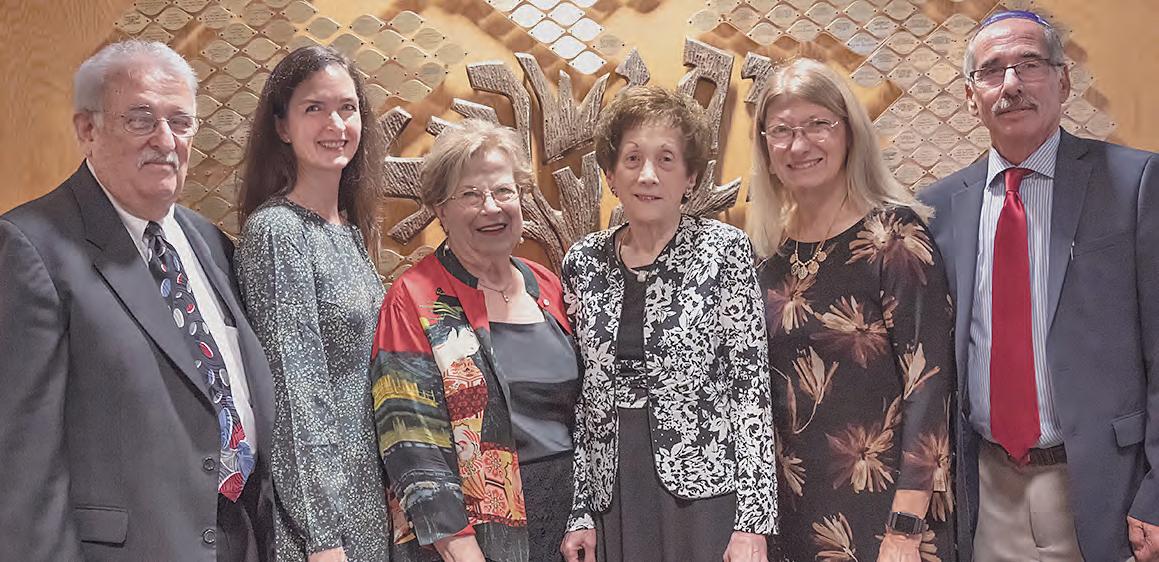
The film chronicles the life of Joseph Polonski from his childhood in Silvaki, Poland, to the Jewish ghetto, and ultimately to Treblinka. His wit and luck allowed him to become one of just two known escapees from Treblinka. After his escape, he served as an officer in the resistance, fighting Nazis until the liberation and eventually immigrated to the United States in 1949.
Tickets for the movie are $5 and can be purchased at, https://tinyurl.com/movienov - Following the movie, there will be a question and answer talk back with members of the Polonski family.
For more information please contact Scott Littky, IHE Executive Director at slittky@ihene.org or 402.334.6575.
Continued from page 1 Monday morning and afternoon—there are ample opportunities for members of the Jewish community to hear and interact with scholars from throughout the world. (A complete program of Symposium activities will appear in next week’s Jewish Press.)
Three of our presenters are focusing on relevant biblical and rabbinic material: Yonatan S. Miller, University of Toledo, Hidden Talents: Examining Tales of Israelite Priestly Corruption; Joel Gereboff, Arizona State University, Yirat Elohim and Yirat Hora’ah: Fear and Other Character Traits of Judges in Biblical and Rabbinic Thought; and Chaya Halberstam, King’s University College at the University of Western Ontario, Interrogating Witness Interrogation in Susanna and the Mishnah
As Miller observes, within Jewish thought the Israelite priesthood generally merits positive observations. Yet a body of authoritative traditions from the Hebrew Bible through rabbinic literature maintains that this body was rife with corruption: whether bribery, embezzlement, or asset seizures. In his presentation Miller provides an overview of some of the major classical sources about priestly corruption and addresses questions about their historical reliability. Second, he notes trends in the treatment of these sources in modern historiographies of the priesthood. In the process he brings clarity to our perceptions about the priestly past, which are often distorted by both ancient and modern theological agendas.
As narrated by Gereboff, judges played a central role in addressing criminality and achieving justice in society. Often, however, judges have themselves been corrupt or unqualified. Among positive traits are these: not showing favoritism, being wise, trustworthy, capable [anshei Chayil], and fearing of God [yirei Elohim]. The main focus of Gereboff’s paper is on rabbinic discussions of these traits, including yirei Elohim. Gereboff explores whether the term yirah here refers to the emotion of fear. The term yirah also appears as “fear of rendering judgment” [yirat hora’ah]. Gereboff’s paper constitutes a contribution to discussions of the place of emotions in the character and actions of judges.
Halberstam presents R. Yohanan Ben Zakai as widely praised for examining witnesses thoroughly. She deepens our appreciation of links between Ben Zakai’s judicial practice and the story of Susanna, a Jewish woman falsely accused of adultery, in an addition to the book of Daniel. Halberstam draws on feminist scholars who see Susanna remain silenced and objectified throughout the story. She turns to the Talmud and contemporary events in the #metoo era to ask whether this mode of intensive interrogation protects the vulnerable or rather undercuts them. An alternate approach – also found in the Talmud – would grant women the authority to speak.
Jeffrey A. Marx, an independent scholar in Los Angeles, turns our attention to the United States. His talk is titled, But How Do You Make a Flood? Jewish Arsonists at the Turn of the Nineteenth Century. Marx illustrates how nineteenth and twentieth century Jews were portrayed on the vaudeville stage, in novels, photograph records, films, and cartoons as unscrupulous merchants, scheming to enrich themselves by taking out fire insurance policies and then burning down their stores. Such stereotypical characterizations should not obscure the fact that there were indeed Jewish arsonists. Marx explores how stories of these arsonists were sensationally portrayed in daily newspapers and what their presentation tells us about both Jews and America at this time.
Kimmy Caplan, Bar-Ilan University, covers much of the same time period in his presentation, Revisiting Fraud, Corruption, and Holiness: American Immigrant Orthodox Rabbis and Crime. He charts the course of immigration between 18701924: considerable numbers of Jews settled in New York City, making it by far the largest Jewish community. Orthodox rabbis were often criminally involved there in the kosher poultry business and in the production and illegal sale of alcohol during Prohibition. Caplan calls attention to additional forms and expressions of criminal acts conducted by them. In the process he offers preliminary observations regarding their mindset, awareness, and perceptions of America and some of
Continued from page 1 thanks to Steve Riekes who is providing light snacks for each session. Sharing food can be a good way to start a conversation, and in this case, a gesture of generosity from a community member. Thank you, Steve.
Omaha’s clergy strive to bring the best learning experiences to the community, and this year they continue that effort by presenting Beit Midrash topics under the umbrella of two separate themes. The first six-part series will explore “Mitzvot” with topics such as Loving Your Neighbor as Yourself, and The Name of G-d. The second theme is an intriguing study of “Life Cycle,” and this eight-part series will hold discussions such as End of Life Choices and Illness, Healing, and Disability. The Beit Midrash series caps off with a Passover-
its legal and other infrastructures and characteristics.
Mara W. Cohen Ioannides returns from her home institution, Missouri State University, for her presentation on Murder-Suicide in the Ozarks: The story of William and Malinda Lowenstein
In December of 1898 William, a German immigrant who had fought for the Union during the Civil War, murdered his wife Malinda and then died by suicide. They had settled on a farm in Missouri, where they raised children and apparently quarreled. What makes the story even more fascinating for Cohen Ioannides is that it became known internationally. In her presentation she examines the circumstances around their final argument and how it was presented to the public.
Four Symposium presenters look at developments within Europe: Victoria Khiterer, Millersville University, The Queen and King of the Russian Underworld: Son’ka the Golden Hand and Mishka Iaponchik; Motti Zalkin, Ben Gurion University, Between Odessa and Vilna – Jewish Organized Crime as a Social Phenomenon; Jesse Abelman, Museum of the Bible, Washington, DC, Legal Autonomy, Violent Crime, and Informing to Gentile Courts in High Medieval Ashkenaz; and Elena Hoffenberg, University of Chicago, Between Social Scientific Objectivity and Jewish Political Subjectivity: Liebmann Hersch’s Analysis of Jewish Criminality in Poland
Khiterer analyzes how two Jewish thieves became the queen and king of the Russian underworld in the late nineteenth and early twentieth centuries. Both originated in Odessa. Son’ka committed her crimes in many different places; Mishka’s gang limited its activities to that city. Son’ka often used her attractiveness and sexuality to seduce potential victims, usually wealthy men. The crimes of Mishka and his accomplices were more violent: they sometimes killed their victims. Son’ka didn’t show interest in political and national life, in which Mishka actively participated. Despite the differences in their methods, they both became legends of the criminal underworld, described in memoirs and fiction and depicted in several films.
Zalkin covers similar phenomena, beginning with the observation that classical historiography had refrained from mentioning the prevalence of organized Jewish crime in preHolocaust Jewish communities. Documentation unearthed in archives after the collapse of the Soviet Union revealed a vast system of active and “colorful” Jewish criminal organizations, which engaged in a wide range of activities. In some cities, they took complete control of the local underworld. Documentation also points to a direct link between this organized crime and the development of Jewish crime in North America. Zalkin centers his examination on two Jewish criminal organizations, “Agudat Akhim” [Brothers Association] and “Degel HaZahav” [The Golden Flag], which operated in Vilna.
Abelman considers violent crime and its regulation within the Jewish communities of Northern France and Germany in an earlier period, the twelfth and thirteenth centuries. He places Jewish courts and the crimes they prosecuted in the context of contemporaneous European institutions. Through the application of various methods, Abelman seeks to answer this question, Who regulated Jewish violence and how? He demonstrates that who would adjudicate cases of violent crime in Jewish communities, Jewish courts or Gentile authorities, was a complex question. Jews sometimes took their violent disputes to Gentile courts, sometimes to Jewish courts, as Jewish authorities sought to maintain control over their communities in the face of the increasing power of secular legal authorities.
Hoffenberg introduces us to the Geneva-based demographer Liebmann Hersch, who began his study of Jewish criminality in Poland in the early 1930s. Hersch worked closely with the YIVO Institute for Jewish Research and was invested in contributing to the institute’s project of serving Eastern European Jewry by publishing scholarship in Yiddish. He also prioritized another purpose of this research, namely, the ability to reach non-Jewish audiences through English, French, and Polish to correct the misconceptions about Polish Jews that served as the foundation of prejudicial attitudes and See Jews and Crime page 4
themed clergy panel on March 29 and a Stump the Clergy forum on May 17. Presenters for the 2022-2023 series are, from Beth El Synagogue, Rabbi Steven Abraham and Hazzan Michael Krausman; Beth Israel Synagogue, Rabbi Ari Dembitzer and Rabbi Yoni Dryer; Temple Israel, Rabbi Batsheva Appel, Rabbi Deana Berezin, Cantor Joanna Alexander, and Rabbi Emeritus Aryeh Azriel; Chabad of Nebraska, Rabbi Mendel Katzman and Rabbi Eli Tenenbaum.
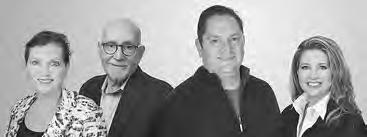
Updates and reminders will be published in the Jewish Press and the JFO E-News. The Omaha Beit Midrash series is a co-operative effort with Beth El Synagogue, Beth Israel Synagogue, Temple Israel, Chabad of Nebraska, and the Jewish Federation of Omaha. Address questions to Mark Kirchhoff at mkirchhoff@jewishomaha.org or 402.334.6463.
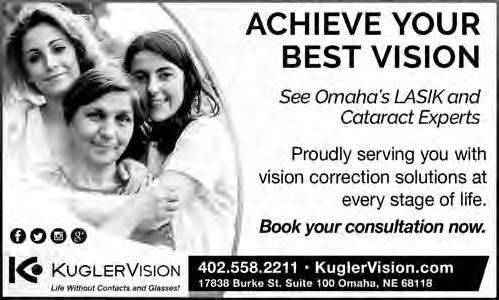
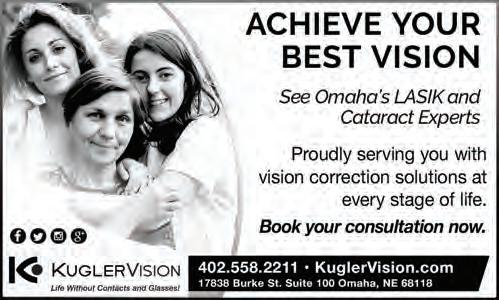
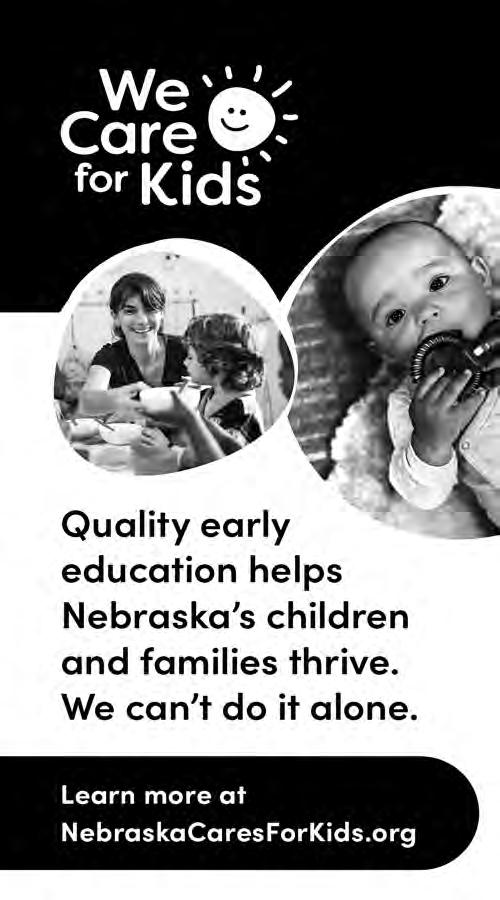

8910 Douglas Court | $695,000
Exceptional all-brick townhouse Spring Green and Dist 66. Living room w/two-story balcony and wall of beautiful bookcases, hardwood floors. Elegant primary bedroom features a huge walk-in closet, two luxurious bath vanities and gorgeous fixtures. Gorgeous landscape and private brick patio!
9720 Hascall Street | $1,350,000
Landmark Westside/Dist. 66 2 Story 6 Bed, 6 Bath. Features a Main Floor primary bedroom. 60X25’ pool with a luxurious poolside bathroom majestically situated on almost a full acre.

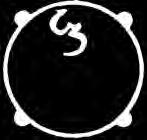



On Oct. 20 at 1 p.m. the Dorothy Kaplan Book Discussion Group will gather for their monthly meeting. Group members have the choice of meeting either in person in the Benjamin & Anna Wiesman Reception Room in the Staenberg Jewish Community Center or via Zoom. New participants are always welcome. This month they will be discussing The Last Bathing Beauty by Amy Sue Nathan.

If you are old enough to remember the days when summers were spent lakeside at summer resorts like the Catskills on the East coast, or South Haven in the Midwest, you will definitely identify with the sentimental era of Amy Sue Nathan’s novel The Last Bathing Beauty. It’s 1951, the summer before 18-year-old Betty Stern (Boop) leaves the comfort and security of her home and her grandparents who run Stern’s Summer Resort. She leaves for college in New York City and begins her quest to become a fashion editor. It looks to be one final summer to have fun, be carefree with her two best friends Georgia and Doris, to find love, and to compete in the annual Miss South Haven beauty pageant. As the Yiddish expression says, “Man plans and G-d laughs.” Betty’s summer turns out far different from what she had planned with an unexpected pregnancy, a lost love, and a much different future than she had envisioned.
Decades later, Boop (Betty) is still dealing with the consequences and events that occurred during that fateful summer. It’s 2017 and Boop is now a widow who has moved back to
from page 3

policies. These insights enable Hoffenberg to offer insights into the political stakes of research on Jewish criminality in the interwar period.
Two of the presenters from Israel deal centrally with their homeland. Independent scholar Menachem Keren-Kratz analyzes Ideologically Justified Violence Among Israel’s Ultra-Orthodox Society. In recent decades the Israeli press has reported on violent acts by Ultra-Orthodox Jews, also known as Haredi, aimed at other Haredi. Uniquely, the perpetrators of these acts offer ideological and religious justifications, insisting they are only doing what’s right in God’s or in their rabbi’s eyes. In today’s Israel, Keren-Kratz contends, Haredi society has adopted ideologically justified violence as a legitimate tool to enforce its social and religious norms. Consequently, acts of violence are used against individuals, even prominent Haredi rabbis, who are accused of breaching the “right” Haredi standards. Violent actions are taken not only against individuals but also against entire groups.
Motti Inbari, University of North Carolina Pembroke, has titled his paper, How did Settlers’ Rabbis Respond to Violence and Incitement? The Case of the Massacre in the Tomb of the Patriarchs in Hebron (1994) and the Assassination of Israeli Prime Minister Yitzhak Rabin (1995). In his paper Inbari examines the response of the religious authorities of the ideological settlers to these two specific acts of violence. Inbari’s analysis produces a complex picture. Though they generally refrained from supporting violence, religious authorities were sometimes reluctant to condemn it. Inbari shows that in some cases they displayed a tendency to shift the blame to the victims – the Arab public or those responsible for setting official Israeli policy.
Popular culture is the shared focus of two other presentations. In Breaking the Frame: The Jewish Gangster Figure’s Defiance of Narrative, Joseph E. Kraus, University of Scranton, speaks of the image of the Italian gangster as metonymy. The generic gangster implies a larger structure of boss/capo/button-man. He is “framed” by a story strong enough to bring successive ethnic criminal organizations as adversaries or allies into the same structure. The figure of the Jewish gang-
South Haven and the house in which she grew up, awaiting a visit from her best friends Doris and Georgia. This is to be the last time all three girls will be back together in their childhood town before Boop moves to San Diego.
Unexpectedly, Boop’s youngest granddaughter, Hannah, shows up and reveals that she and her boyfriend Clark are expecting a baby. In trying to guide and help Hannah figure out what comes next, Boop is not only forced to face her past, but discover some truths that have long been hidden.
In The Last Bathing Beauty, Boop reveals secrets that have long been hidden away and finally need to be faced. What happened during that summer in 1951?. We learn how Boop’s dreams and hopes changed, some had tragic consequences and some ended up being blessings – although they didn’t seem that way at the time. Sometimes second chances reveal more about the character of a person than you’d think, and sometimes second chances can make all the difference in a person’s life and pursuit of happiness.
Please feel free to join us on Oct. 20 in person or via Zoom.

The Dorothy Kaplan Book Discussion Group meets on the third Thursday of every month at 1 p.m. New members are always welcome.
The Group receives administrative support from the Community Engagement & Education arm of the Jewish Federation of Omaha. For information about the group and to join in the discussion, contact Shirly Banner at 402.334.6462 or sbanner@jewishomaha.org
ster falls outside that frame. In this light, Kraus contends, a Jewish gangster challenges two conventional narratives: American organized crime as chiefly an Italian-American phenomenon and Jews as the model ethnic minority. As such, this figure recalls a wide set of historical assumptions only to question his place within them.
Dan Clanton, Doane University, begins his presentation, titled ‘Frightfully Decent’: Jews in Golden Age Crime Fiction, by acknowledging that in Golden Age crime fiction Jews are often relegated to pejorative stereotypes because of the assumptions of hegemonic Christian society. Clanton contends that Agatha Christie challenges and even subverts this normative depiction of Jews in crime fiction through her Hercule Poirot stories, in which she portrays Jews as different but not anathema. He concludes with a consideration of how cinematic interpretations of Christie’s Poirot stories have dealt with the issue of Jewish representation.
All of this is in addition to the keynote presentation—Professor Nathan Abrams, Bangor University Wales, Cops and Criminals: Jews in Twenty-First Century Film and Television This is scheduled for Sunday, Oct. 23, at 7:30 p.m., at Beth El Synagogue. Like all Symposium events, this is free and open to the public.
The co-hosts of the annual Symposium on Jewish Civilization are the Klutznick Chair in Jewish Civilization at Creighton University, the Kripke Center for the Study of Religion and Society at Creighton University, the Harris Center for Judaic Studies at the University of Nebraska-Lincoln, and the Schwalb Center for Israel & Jewish Studies at the University of Nebraska at Omaha. Along with them are the Jewish Federation of Omaha and Creighton’s Committee on Lectures, Films, and Concerts. From within the Jewish community, the Ike and Roz Friedman Foundation, the Riekes Family, the Henry Monsky Lodge of B’nai B’rith, the Javitch family, and the Drs. Bernard H. and Bruce S. Bloom Memorial Endowment are among those who also provide generous support.
For further information, contact Professor Leonard Greenspoon: 402.280.2304, ljgrn@creighton.edu. Additional information can be viewed at www.creighton.edu/ccas/ klutznick
JTA
A broken window interrupted the final moments of Yom Kippur services in Hannover, Germany, unsettling a Jewish community on edge because of prior attacks during the holiday.
It was unclear late Wednesday exactly what had happened at the Orthodox synagogue in the northern German city, officials there said. Police are investigating and had learned that there are no video cameras in the vicinity, according to local media reports. No one was injured in the incident.
The chair of the synagogue said he believed someone had entered the synagogue grounds and thrown an object through the window. The synagogue’s rabbi said he believed that the broken window represented an assault on his community.
“I don’t want to play down what happened, but such criminal acts were often our historical companions,” Rabbi Shlomo Afanasev wrote on Twitter, where he posted videos of the broken window. “We will not be intimidated and will continue to build: our communities, our families, and Judaism in Germany.”
The incident comes three years after an attack on a synagogue in Halle, Germany, during Yom Kippur perpetrated by a neo-Nazi extremist who is now serving a life sentence. Last year, German police said they foiled a Yom Kippur attack on a synagogue in Hagen planned by a family with ties to Islamic terrorism.
Rabbi Rebecca Blady, who was present during the attack in Halle and directs Hillel in Germany from Berlin, tweeted that she had put off signing online after Yom Kippur be-
cause she was afraid of what she would learn.
“Yom Kippur is never quiet here. I delayed returning to my devices and accounts til hours after the fast ended, to hold the high that I was blessed to have in Berlin today. Because somehow, in Germany, that high can’t
Sunday Nov. 6, at 1 p.m., Jewish Family Service invites you to a Therapeutic Drumming Experience in the Shirley and Leonard Goldstein Community Engagement Venue. The event is facilitated by Standing Buffalo, who is a spiritual shaman. This event is open for all ages, and there is no cost to participate.

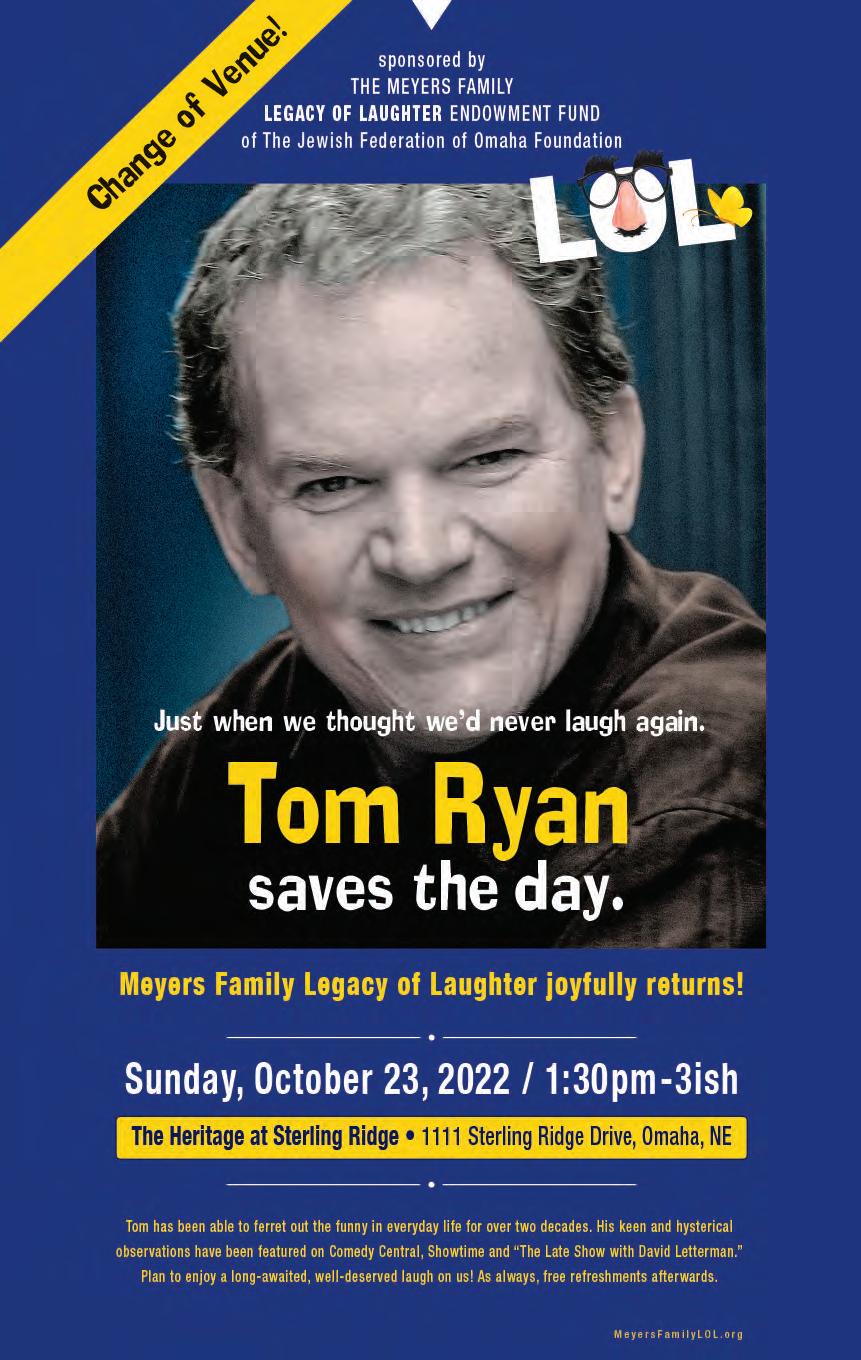
The rabbi of the Jewish community of Hannover, Germany, posted pictures of a broken window he said followed an attack during Yom Kippur services in 2022. Credit: Instagram
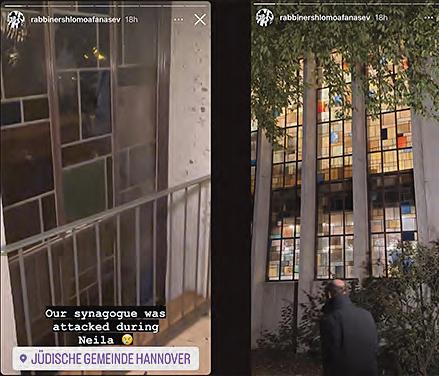
last. Schade,” Blady wrote, using the German word meaning “pity.”
German officials say they want a full explanation of the incident in Hannover. “If it is confirmed that the window was smashed, this is not mere property damage,” Boris Pistorius, the interior minister of Lower Saxony, Hannover’s region, said in a statement. “Any form of violence against Jewish life is an attack on our free, open and solidary society.”
The German government reported a 29% increase in antisemitic incidents between 2021 and 2022, with most of the incidents emanating from the country’s right wing and most relating to online activity.
Therapeutic Drumming utilizes the rhythm and vibrations of drums and other percussion instruments as a means to access a transformative healing process. It allows participants to connect with a deeper part of themselves, and to the world around them. Therapeutic Drumming is an ancient approach to healing, that focuses on self-expression combined with the comradery and support offered by a group dynamic. In the aftermath of a very difficult pandemic, as well as violence, war, financial hardship, and other suffering experienced by humanity in recent months/ years, Jewish Family Service would like to offer a unique bonding and healing opportunity to people in our community!
• If you have your own drum or other portable
percussion instrument, feel free to bring it!
• We will have a limited number of frame drums and other instruments on loan during the event... OR feel free to just listen and take in the experience!
Please RSVP to Teresa Drelicharz, 402.334.6591, or via email, tdrelicharz@jfs omaha.com. This event was made possible through a charitable donation from the JFO Special Donor-Advised Fund.

USA.gov website

Being mentally healthy during childhood means reaching developmental and emotional milestones and learning healthy social skills and how to cope when there are problems. Mentally healthy children have a positive quality of life and can function well at home, in school, and in their communities.
Mental disorders among children are described as serious changes in the way children typically learn, behave, or handle their emotions, which cause distress and problems getting through the day. Many children occasionally experience fears and worries or display disruptive behaviors. If symptoms are serious and persistent and interfere with school, home, or play activities, the child may be diagnosed with a mental disorder.
Among the more common mental disorders that can be diagnosed in childhood are attention-deficit/hyperactivity disorder (ADHD), anxiety (fears or worries), and behavior disorders.
Other childhood disorders and concerns that affect how children learn, behave, or handle their emotions can include learning and developmental disabilities, autism, and risk factors like substance use and self-harm.
Symptoms of mental disorders change over time as a child grows, and may include difficulties with how a child plays, learns, speaks, and acts, or how the child handles their emotions. Symptoms often start in early childhood, although some disorders may develop during the teenage years. The diagnosis is often made in the school years and sometimes earlier; however, some children with a mental disorder may not be recognized or diagnosed as having one.
Childhood mental disorders can be treated and managed. There are many treatment options based on the best and most current medical evidence. Parents and doctors should work closely with everyone involved in the child’s treatment— teachers, coaches, therapists, and other family members. Taking advantage of all the resources available will help parents, health professionals, and educators guide the child towards success. Early diagnosis and appropriate services for children and their families can make a difference in the lives of children
Childhood mental disorders affect many children and families. Boys and girls of all ages and ethnic/racial backgrounds and living in all regions of the United States experience mental disorders. Based on findings from previous studies, it is estimated that in 2007, 13–20% of children living in the United States (up to 1 out of 5 children) experienced a mental disorder in a given year, costing individuals, families, and society an estimated $247 billion per year.
Mental health is important to overall health. Mental disorders are chronic health conditions—conditions that last a long time and often don’t go away completely—that can continue through the lifespan. Without early diagnosis and treatment, children with mental disorders can have problems at home, in school, and in forming friendships. Mental disorders can also interfere with a child’s healthy development, causing problems that can continue into adulthood.

Supporting children’s mental health also includes making sure children meet developmental milestones, understanding what to do when there is a concern, supporting positive parenting strategies, and improving access to care.
Parents: You know your child best. Talk to your child’s healthcare professional if you have concerns about the way your child behaves at home, in school, or with friends.
Youth: It is just as important to take care of your mental health as it is to take care of your physical health. If you are angry, worried or sad, don’t be afraid to talk about your feelings and reach out to a trusted friend or adult.
Healthcare professionals: Early diagnosis and appropriate treatment based on updated guidelines are very important. There are resources available to help diagnose and treat children’s mental disorders.
Teachers/school administrators: Early identification is important so that children can get the help they need. Work with families and healthcare professionals if you have concerns about the mental health of a child in your school.
This series is sponsored by the Jewish Press and the Jennifer Beth Kay Memorial Fund.
“I became involved with the Jewish Federation in 1974. Through the years I’ve seen the importance of the services and programs the Federation offers to our wonderful community. I have made it a priority to support the Federation and feel privileged to give at the Lion of Judah level. I’m proud to be a part of this international sisterhood of women who care deeply about our Jewish future.”
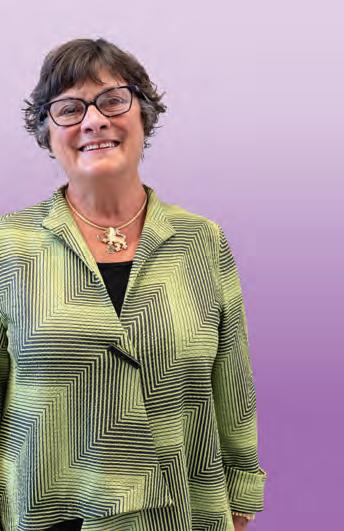
to a part this sisterhood of women about our h f
Your support helps us build meaningful relationships with individuals empowering them to make a lifelong connection to the Omaha Jewish community.
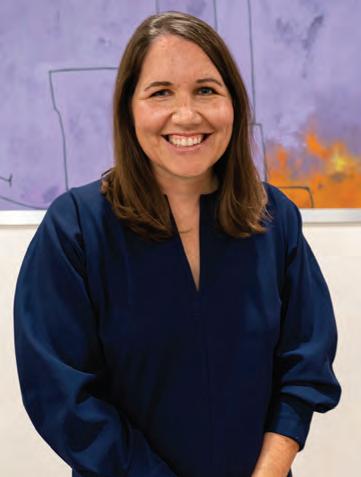
“The various perspectives I’ve had within this community have given me a fuller perspective on why it’s important to give. I’ve been a child growing up in this community, a young adult leaving this community, and now an adult/parent coming back to this community. The JFO needs our support to maintain our vibrant and sucessful community. It’s not going to get done by itself.”
In finally addressing the protests against the repression of women that have for two weeks roiled his country, Iran’s supreme leader, Ayatollah Ali Khamenei, blamed Israel and the United States for the unrest.
“I openly state that the recent riots and unrest in Iran were schemes designed by the U.S.; the usurping, fake Zionist regime; their mercenaries; and some treasonous Iranians abroad who helped them,” Khamenei said Monday in a speech to police cadets in Tehran, remarks which were later posted in English on his official Twitter account.
The protests that have engulfed the country since Sept. 17 were sparked by the death in custody of Mahsa Amini, 22, who had been arrested for not properly wearing a headscarf.
There have been hundreds of arrests and state TV has reported over 40 deaths of protesters and police.
Khamenei did not offer any evidence to back up his assertion on Monday, other than to claim that protests in other countries do not garner as much international attention and condemnation. Khamenei heads a regime that has for decades backed the dismantling of Israel and lends logistical support to terrorist groups and some of Israel’s most implacable enemies.
Simultaneous demonstrations in support of Iran’s protests took place across the world on Saturday. As in many other countries, Israeli women have recorded online videos in support of the Iranian protesters; at least one set was organized by Israel’s foreign ministry.
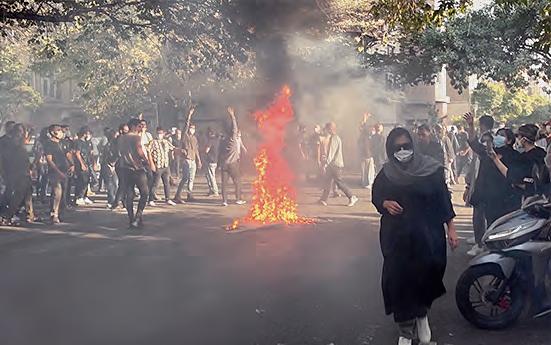
Top, above, below and bottom: Students and staff from Friedel Jewish Academy had an amazing field trip to the Tri-Faith Initiative Commons. They performed tashlich (symbolically throwing our sins into the water), had a tour of the Tri-Faith Garden, and got to help with a mulching project.
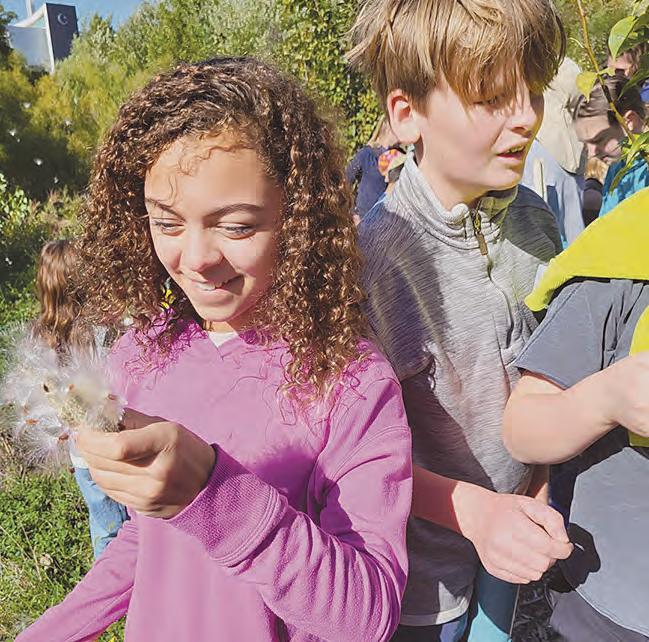
FJA thanks the Congregation of Temple Israel staff and Tri-Faith Garden volunteers, and to Rabbis Abraham, Dembitzer, and Dreyer, who also joined.

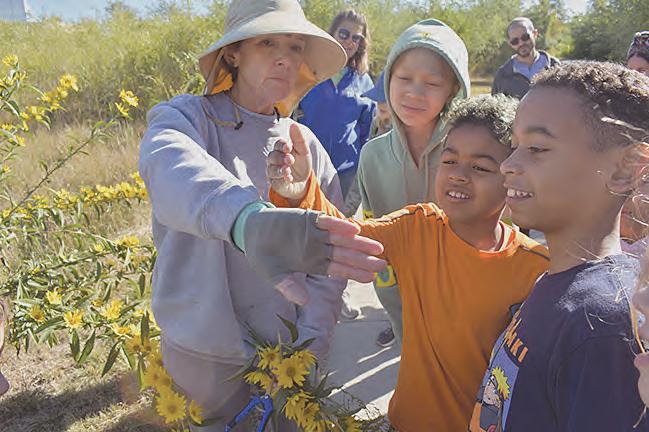

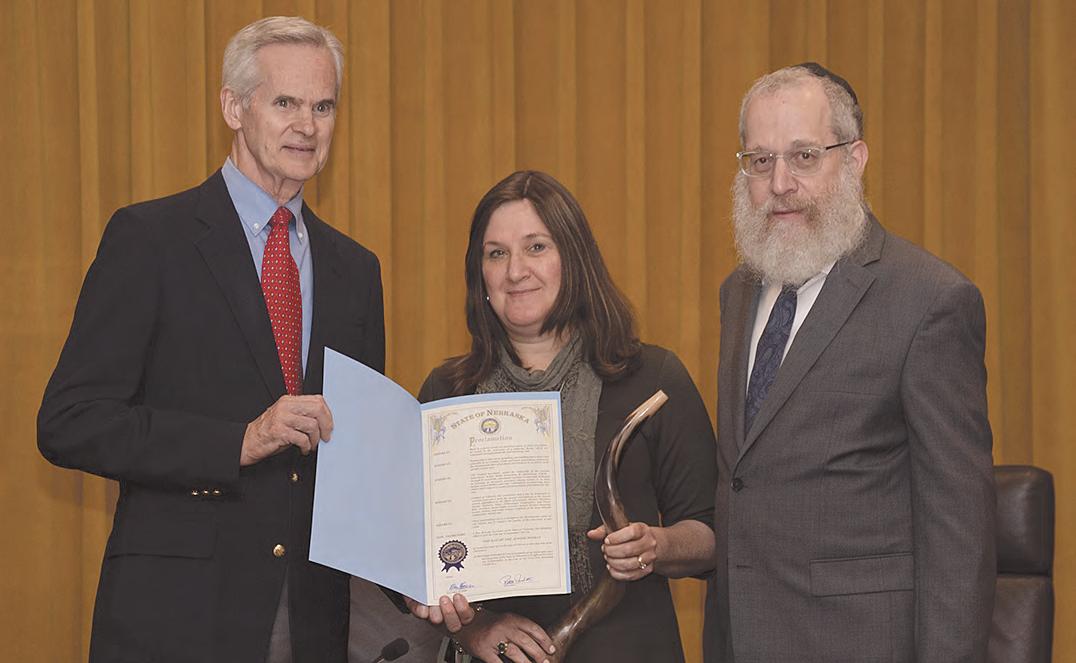
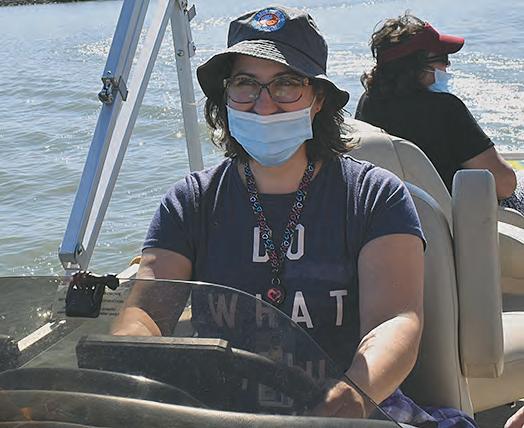
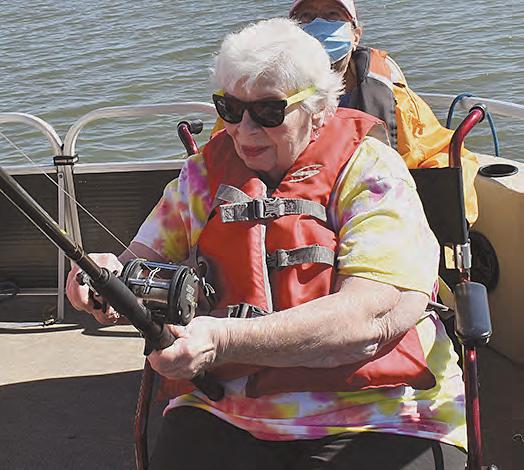
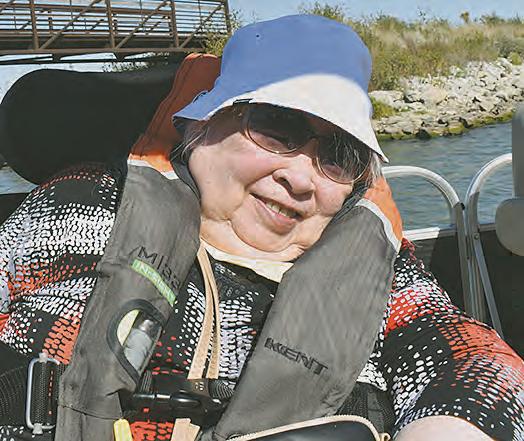
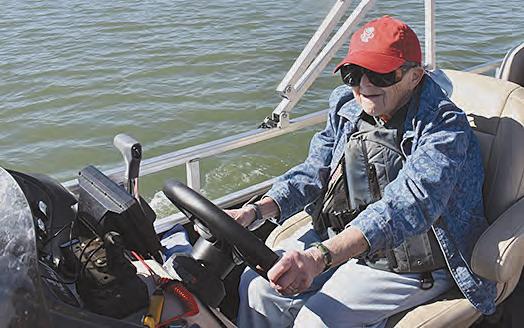
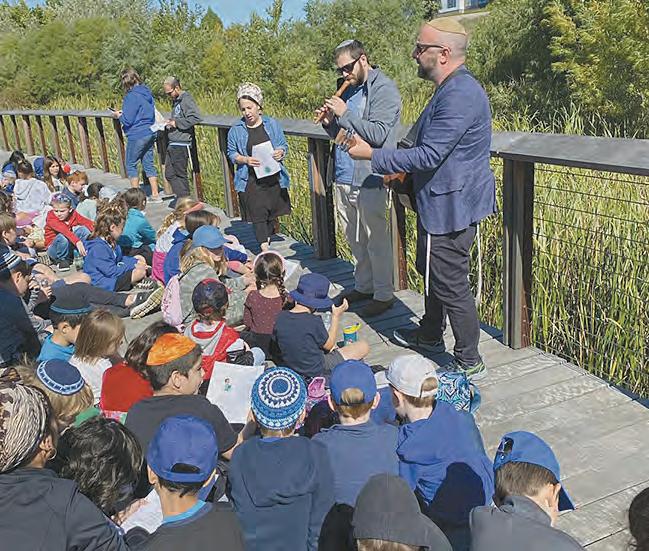

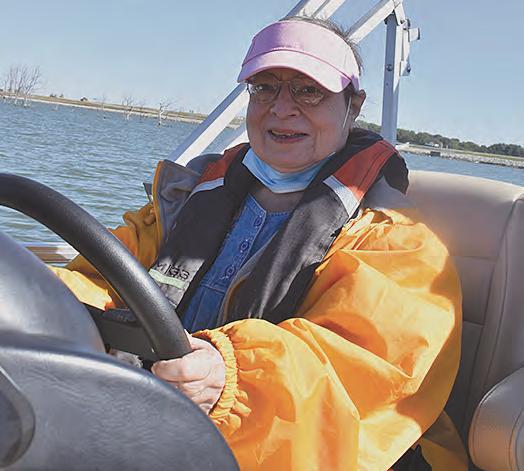
SUBMIT

Margie Gutnik, President; Abigail Kutler, Ex-Officio; Seth Feldman; David Finkelstein; Ally Freeman; Mary Sue Grossman; Les Kay; Natasha Kraft; Chuck Lucoff; David Phillips; and Joseph Pinson.
The mission of the Jewish Federation of Omaha is to build and sustain a strong and vibrant Omaha Jewish Community and to support Jews in Israel and around the world. Agencies of the JFO are: Institute for Holocaust Education, Jewish Community Relations Council, Jewish Community Center, Jewish Social Services and the Jewish Press
Guidelines and highlights of the Jewish Press, including front page stories and announcements, can be found online at: www.jewishomaha.org; click on ‘Jewish Press.’
Editorials express the view of the writer and are not necessarily representative of the views of the Jewish Press Board of Directors, the Jewish Federation of Omaha Board of Directors, or the Omaha Jewish community as a whole. The Jewish Press reserves the right to edit signed letters and articles for space and content. The Jewish Press is not responsible for the Kashrut of any product or establishment.
Editorial
The Jewish Press is an agency of the Jewish Federation of Omaha. Deadline for copy, ads and photos is: Thursday, 9 a.m., eight days prior to publication. E-mail editorial material and photos to: avandekamp@jewishomaha.org ; send ads (in TIF or PDF format) to: rbusse@jewishomaha.org
The Jewish Press welcomes Letters to the Editor. They may be sent via regular mail to: The Jewish Press, 333 So. 132 St., Omaha, NE 68154; via fax: 1.402.334.5422 or via e-mail to the Editor at: avandekamp@jewishomaha.org.
Letters should be no longer than 250 words and must be single-spaced typed, not hand-written. Published letters should be confined to opinions and comments on articles or events. News items should not be submitted and printed as a “Letter to the Editor.” The Editor may edit letters for content and space restrictions. Letters may be published without giving an opposing view. Information shall be verified before printing. All letters must be signed by the writer. The Jewish Press will not publish letters that appear to be part of an organized campaign, nor letters copied from the Internet. No letters should be published from candidates running for office, but others may write on their behalf.
Letters of thanks should be confined to commending an institution for a program, project or event, rather than personally thanking paid staff, unless the writer chooses to turn the “Letter to the Editor” into a paid personal ad or a news article about the event, project or program which the professional staff supervised. For information, contact Annette van de Kamp-Wright, Jewish Press Editor, 402.334.6450.
Postal
The Jewish Press (USPS 275620) is published weekly (except for the first week of January and July) on Friday for $40 per calendar year U.S.; $80 foreign, by the Jewish Federation of Omaha. Phone: 402.334.6448; FAX: 402.334.5422.
Periodical postage paid at Omaha, NE. POSTMASTER: Send address changes to: The Jewish Press, 333 So. 132 St., Omaha, NE 68154-2198 or email to: jpress@jewishomaha.org
The day after Yom Kippur, with my brain still fuzzy from services and fasting (a friend called it ‘high holiday fog’), I saw this photo, which we’ve reprinted here. With it was the text:
“We thank United Hatzalah's Muslim EMTs who took over ambulance shifts and answered calls on Yom Kippur so that Jewish medics could focus on their prayers. Our volunteers treated more than 2,500 people across Israel today. They worked with true dedication throughout the holiday and provided a near-immediate response to medical emergencies all over the country that included cases of fainting, low blood pressure, births, motor vehicle accidents, bicycle accidents, and many others."
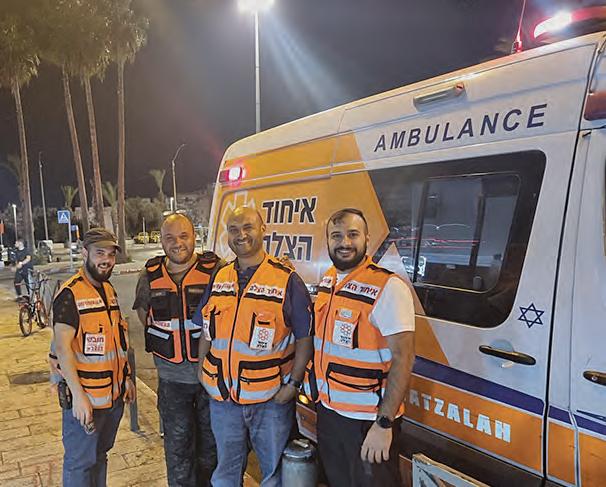
Nice, isn’t it? That was my first thought. Then I realized there is a deeper truth here.
Celebrating and observing the high holidays in Omaha, Nebraska, is a beautiful thing. We have synagogues, we have Chabad, and although it’s not always easy, neither is it impossible to get our hands on the foods we need. Sure, Jews are a minority, but we still have enough of us to fill the room. We are in the diaspora, but we are not alone.
And yet. It can be a little troubling to be surrounded by thousands of people who literally have no clue it’s a holy day. Do you ever feel that way when you drive to shul, and everyone else is just running around because to them, it’s a regular Wednesday? And when you plug your phone back in, there’s missed calls from random people who
don’t know why you didn’t answer? I’m not complaining- it simply is what it is. However, it’s also good to remember it can be different. There is a place where those who are not Jewish still understand our calendar. The way Jews in other places volunteer for shifts on Christmas, these Israeli Muslim EMTs understand the importance of Yom Kippur for their colleagues.
Much of the news about Israel or about Jewish life in America we see in the mainstream media is negative, troubled, focused on comflict. Stories like these, where human beings interact and help each other out, where their difference in religion actually creates an opportunity to connect, are not sexy enough to make the evening news. They don’t fit the narrative. And that is a pity, because those of us living in the diaspora could really benefit from these stories circulating.
I think, after many years of BDS, problematic behavior at universities and accusations of pink washing, synagogue shootings and rocks through windows and questionable conspiracy theories about Jews with lizard DNA, we really, really need some positive stories. Not just to tell ourselves and each other, but to share with the world around us.
When we share positive stories, we educate our-
selves and others: being Jewish is not a tragedy. It’s not all trauma and Antisemitism and loss. It’s also life and light, singing and dancing, simchas and holidays and really great food. Most of all, it’s the Torah teaching us to care for others, to welcome the stranger, and how that means many different
things. We can remind people that Muslim EMTs taking over the work for their Jewish colleagues during Yom Kippur is actually a really normal thing in some places. Helping others, whether those others are like us or not, should be the norm.
And we can remind people that, whether we talk about Israel, or about Jewish life in America, we can all use a helping hand.
I am a sucker for extreme sports — or at least reading about them. My ideal Sunday afternoon involves a comfy chair and a thick book or Netflix documentary about mountain climbers trying to escape an avalanche, or an ultra-runner suffering during a 24-hour race.
Stories of people under extremis appeal to the 12-year-old boy in me, but I also read them hoping their authors’ suffering and triumphs will cough up some sort of wisdom about the human condition. What do they learn about themselves when they push their bodies to the limits? It’s the rare book by an adventurer or endurance athlete that doesn’t include a moment of satori, the Japanese Buddhist term for awakening or enlightenment — or at least a glimmer of self-knowledge. Writes the triathlete and mountain biker Terri Schneider: “Enduring is, in essence, a concentrated version of life placed under a bright microscope.”
I am not always glued to the comfy chair, but probably the most physically punishing thing I do all year is the Yom Kippur fast. The 25-hour fast and synagogue marathon is its own endurance event. I hear echoes of the endurance athlete when rabbis describe the day as a test of “our willingness to submit to discipline” or “whether we are made of that same tough stuff that allowed Judaism to survive for thousands of years.”
As Yom Kippur approaches Tuesday night, one of the books on my nightstand is “The 12-Hour Walk,” a self-help book by the endurance athlete and adventurer Colin O’Brady. (He has written about his own attempt to become the first person to ski alone across Antarctica.) He suggests that you set aside 12 hours to walk alone, unplugged, at your own pace and as far as you want to or can go. The physical test, the silence and the sense of accomplishment will leave you feeling you can overcome anything and “unlock your best life.”
“When I was crossing Antarctica alone in 2018 I was pulling my sled in silence for 12 hours per day.
In the latter half of that crossing I felt deeply connected to mind, body, and spirit,”O’Brady told an interviewer. “Despite my body being worked, despite my ribs protruding, despite the frostbite on my face and limited food, I found this sort of flow state, this
connection to purpose and fulfillment. I thought I could take that with me forever.”
A 12-hour silent walk sounds like the opposite of Yom Kippur, which involves hours of sitting in a crowd and facing a torrent of words. But the experience he describes has its similarities with the Day of Atonement. There is often, for example, the point in many adventurers’ memoirs when they talk about dying, or what they learned when they thought they were going to die. That too is a theme of Yom Kippur — if not actually pushing ourselves to our physical limits, it is a day, as Lew once explained, to “rehearse your own death. You wear a shroud and, like a dead person, you neither eat nor drink nor fornicate. You summon the desperate strength of life’s last moments.”
Summoning that desperate strength is also the point of endurance sports. Joshua Kulp, a triathlete and the rosh yeshiva of the Conservative Yeshiva in Jerusalem, has written about his running in the context of Judaism. “When I was exhausted running the marathon, when all I wanted to do was join all of those walkers, I was somehow able to reach deep into my kishkes and go to places I’d never been,” he writes.
Finally, the Yom Kippur fast, like many endurance tests, is about what happens when you separate yourself from ordinary pleasures. Yom Kippur, writes Sue Levi Elwell in “The Sacred Table: Creating a Jewish Food Ethic,” “affords a unique opportunity for worshipers to stay for extended hours in synagogue and to distance themselves from socializing and food.” The 12-hour walk makes this “distancing” more than a metaphor, but similarly suggests enlightenment comes with the shock of separation.
In both cases, blessedly, such deprivation is temporary and voluntary. As Kulp points out, the suffering distance runners inflict on themselves is in some ways a luxury of the fit and the healthy. A grueling race offers “the opportunity to suffer without

fear of loss,” he writes.
A 12-hour walk, even at a strolling pace, sounds hard enough. Doing it without listening to podcasts or an audiobook sounds like pure torture. But it won’t be fatal. I am curious what I might learn if I were to push myself past my comfort zone. Certainly, Yom Kippur does that. Sometimes it just
leaves me head-achey and annoyed. And sometimes, I hear a prayer or come across a passage that touches me deeply and may just make a difference in how I treat others. And by sundown, and my first bite of bagel, I feel ready — for a little while anyway — to live my best life.
Andrew Silow-Carroll is editor in chief of the New York Jewish Week and senior editor of the Jewish Telegraphic Agency. He previously served as JTA’s editor in chief and as editor in chief and CEO of the New Jersey Jewish News. @SilowCarroll
The views and opinions expressed in this article are those of the author and do not necessarily reflect the views of JTA or its parent company, 70 Faces Media.
Announcements may be e-mailed to the Press at jpress@jewishomaha.org; or mailed to 333 So. 132 St., Omaha, NE 68154. Readers can also submit announcements -- births, b’nai mitzvahs, engagements, marriages, commitment ceremonies or obituaries -- online at www.omahajewish press.com/site/forms/. Deadlines are normally nine days prior to publication, on Wednesdays, 9 a.m. Please check the Jewish Press, for notices of early deadlines.
It is rare that one can say attending a funeral was an uplifting experience. Yet the funeral Thursday for Judah Samet — teacher of Torah at his Tree of Life synagogue, possessor of a unique and vigorous voice and sense of humor, veteran of the paratroop division of the Israeli army, lover of Golden Grahams, generous tipper and possessor of what he termed a “Bergen-Belsen stomach” — was exactly that, because remembering Judah can bring only positive feelings.
Samet, a longtime pillar of Pittsburgh’s Jewish community who spoke frequently about his experience during the Holocaust, vaulted onto the national stage on Oct. 27, 2018, when a gunman entered his synagogue and murdered 11 Jews during Shabbat services. Samet, whom I and others in the community knew as Judah, had arrived a few minutes late and was warned away, remaining in his car outside the synagogue as gunshots sounded. The following February, Judah was a guest of President Donald Trump during the State of the Union address.
“I’m going to say a Jewish blessing that you say only when you meet a head of state,” he told the Pittsburgh Tribune-Review at the time. “I have permission to do it.”
The State of the Union was a far cry from Judah’s childhood in Hungary, where he was born in February 1938. As a young child, he was forced by the Nazis from his home and shipped with his family first to a labor camp in Austria and then to the Bergen-Belsen concentration camp. His father died of typhus three days after liberation, but the rest of the family made their way to prestate Israel. He moved to Pittsburgh in the 1950s, ultimately joining his father-in-law’s jewelry business there and remaining a committed community member until his death at 84 on Tuesday, the second day of Rosh Hashanah.
At his funeral, Judah’s son-in-law, the playwright David Winitsky, spoke of a time they went out to the casual restaurant Eat N’Park together and his father-in-law praised the service the waitress gave the table. Yet, he wasn’t content just with complimenting her — he told her that he would let her manager know what a good job she was doing. He said to his son-in-law that it is important to make someone else’s day
better whenever you can.
This simple message seems uncomplicated enough, but then one thinks about the occasions when Judah was on his own — the years he was in a labor camp and in Bergen Belsen, in the Israeli army, and the terrifying moments he spent in his car parked outside the door of the Tree of Life, the synagogue he attended for over 40 years while a police detective and the man who shot 11 Jews inside the building traded gunfire.
that he knew teen girls did not like their mothers but that their mothers were the only ones who would do anything and go through anything to care for them. As he said about his mother in a 2012 Holocaust Center interview, “She was a tower of strength….Her mind was dedicated 24 hours a day to saving her family.” After hearing how his own mother told him and his siblings to eat lice to sustain themselves in the camps and how she foraged food for them, many students did what he said and went home to hug their mothers.
It was Judah’s 81st birthday when the president of the United States led both houses of Congress in singing to him at the State of the Union address, watched by millions on national television. He was a guest of the first lady, sitting in her box; who knows how many Americans were educated about the Holocaust and antisemitism just by hearing a small snippet of the story of Judah’s life.
Judah Samet stands next to his portrait, part of Luigi Toscano’s “Lest We Forget” project at the University of Pittsburgh in 2019.

Photo by Hector Corante Credit: Holocaust Center of Pittsburgh
Judah’s drive to inspire others to better their lives and the lives of those around him was most evident in his tireless efforts to educate young people in Pittsburgh and beyond about the Holocaust. After not speaking about his experience for many years, he began sharing just over a decade ago, and he ultimately delivered hundreds of talks that reached the ears of tens of thousands of people, according to Lauren Bairnsfeather, executive director of the Holocaust Center of Pittsburgh.
Judah knew his words had an impact because of the countless letters he received from students over the years about what his story meant to them.
Judah’s sister Miriam Cohen, born in Israel when their mother remarried after the war, recounted at the funeral that one time at the Pittsburgh community Yom HaShoah commemoration, a family arrived that looked out of place. At the end of the service, the teenaged daughter came up to Judah and gave him a big hug. She said she wanted her parents to meet him after he had spoken at her school.
Another eulogist talked about what Judah said to students,
Elizabeth Samet said that when her father received his stomach cancer diagnosis in June he told her that if this was it, the end of his life, that was OK with him. That ability to accept what he had and not try to change what might not be possible to change, though he had defied the odds so many times before, is characteristic of great strength.
My personal favorite memory of Judah is from July 4, 2019, at the morning minyan at Beth Shalom, where Tree of Life and New Light, the congregation my husband leads, join together. After we prayed, Judah proudly showed all the attendees the photos he had received from the White House photographer of himself with the first lady and proclaimed what a wonderful country this is to live in. Though he had experienced America at its worst, he remembered it as its best — as a place that welcomes people like him, survivors and immigrants who can improve their own lives and so many others.
Beth Kissileff is a Pittsburgh-based writer. She is the coeditor of the anthology Bound in the Bond of Life: Pittsburgh Writers Reflect on the Tree of Life Tragedy and author of the novel Questioning Return.
The views and opinions expressed in this article are those of the author and do not necessarily reflect the views of JTA or its parent company, 70 Faces Media.

618 Mynster Street
Council Bluffs, IA 51503-0766 712.322.4705 www.cblhs.orb email: CBsynagogue@hotmail.com
Member of United Synagogues of Conservative Judaism 14506 California Street
Omaha, NE 68154-1980 402.492.8550 bethel-omaha.org
Member of Union of Orthodox Jewish Congregations of America 12604 Pacific Street
Omaha, NE. 68154 402.556.6288 BethIsrael@OrthodoxOmaha.org
An Affiliate of Chabad-Lubavitch 1866 South 120 Street
Omaha, NE 68144-1646 402.330.1800 OChabad.com email: chabad@aol.com
South Street Temple Union for Reform Judaism 2061 South 20th Street Lincoln, NE 68502-2797 402.435.8004 www.southstreettemple.org
Capehart Chapel 2500 Capehart Road
Offutt AFB, NE 68123 402.294.6244 email: oafbjsll@icloud.com
JEWISH HOME
323 South 132 Street
Omaha, NE 68154 rbjh.com
Union for Reform Judaism (URJ)
13111 Sterling Ridge Drive
Omaha, NE 68144-1206 402.556.6536 templeisraelomaha.com
Member of United Synagogue of Conservative Judaism
3219 Sheridan Boulevard Lincoln, NE 68502-5236 402.423.8569 tiferethisraellincoln.org
Monthly Speaker Series Service, Friday, Oct. 14, 7:30 p.m. with our guest speaker, Oliver Pollak. Everyone is always welcome at B’nai Israel!
For information on COVID-related closures and about our historic synagogue, please contact Howard Kutler at hkutler@hotmail.com or any of our other board members: Scott Friedman, Rick Katelman, Janie Kulakofsky, Howard Kutler, Carole and Wayne Lainof, Mary-Beth Muskin, Debbie Salomon and Sissy Silber. Handicap Accessible.
Services conducted by Rabbi Steven Abraham and Hazzan Michael Krausman.
VIRTUAL AND IN-PERSON MINYAN SCHEDULE: Mornings on Sundays, 9:30 a.m.; Mondays and Thursdays 7 a.m.; Evenings on Sunday-Thursday 5:30 p.m.
FRIDAY: PreNeg and Tot Shabbat, 5:30 p.m.; Kabbalat Shabbat 6 p.m. at Beth El & Live Stream.
SATURDAY: Shabbat Morning Services with Yizkor, 10 a.m. at Beth El & Live Stream; Jr. Congregation, 10 a.m.; GaGa Shabbat, 10 a.m.; Havdalah, 7:25 p.m. followed by Planetarium Program at Beth El.
SUNDAY: BESTT (Grades K-7), 9:30 a.m.
MONDAY: Shmini Atzeret Morning Service, 10 a.m.; MIncha/Ma’ariv, Hakafot & Building Dedication, 5:30 p.m.
TUESDAY: Simchat Torah Morning Service, 10 a.m.
WEDNESDAY: BESTT (Grades 3-7), 4:15 p.m.; Hebrew High, 6 p.m.; Miriam’s Music Bingo, 7 p.m. at Wyndham Hill Clubhouse.
FRIDAY-Oct. 21: Kabbalat Shabbat, 6 p.m. at Beth El & Live Stream.
SATURDAY-Oct. 22: Shabbat Morning Services, 10 a.m. at Beth El & Live Stream; Jr. Congregation, 10 a.m.; Havdalah, 7 p.m. Zoom Only.
Please visit bethel-omaha.org for additional information and service links.
FRIDAY: Nach Yomi, 6:40 a.m.; Shacharit, 6:45 a.m.; Mincha/Kabbalat Shabbat/Candlelighting, 6:27 p.m.
SATURDAY: Shabbat Kollel, 8:30 a.m.; Shacharit, 9 a.m.; Tot Shabbat 10:45 a.m.; Tehillim for Kids, 5:30 p.m.; Kids Parsha Class, 5:30 p.m.; Mincha/Shalosh Suedos, 6:10 p.m.; Hoshanah Rabbah Learning, 6:40 p.m.; Ma’ariv/Havdalah, 7:26 p.m.
SUNDAY: Shacharit, 9 a.m.; Mincha/Ma’ariv/Candlelighting 6:24 p.m.
MONDAY: Synagogue Office Closed; Shacharit, 9 a.m.; Kiddush, 11 a.m.; Mincha/Ma’ariv, 6:20 p.m.; Candlelighting 7:23 p.m.
TUESDAY: Synagogue Office Closed; Shacharit, 9 a.m.; Simchat Torah, 10 a.m.; Kiddush, 11 a.m.; Mincha/Ma’ariv, 6:20 p.m.; Havdalah 7:21 p.m.
WEDNESDAY: Nach Yomi, 6:45 a.m.; Shacharit, 7 a.m.; Daf Yomi, 5:50 p.m.; Mincha/Ma’ariv, 6:20 p.m.
THURSDAY: Nach Yomi, 6:45 a.m.; Shacharit, 7 a.m.; Character Development, 9:30 a.m.; Daf Yomi, 5:50 p.m.; Mincha/Ma’ariv 6:20 p.m.; Parsha Class 6:50 p.m.
J Days is a new program at the JCC, geared towards retirees or anyone looking to meet new friends to play games (like bridge, mahjong, dominoes, etc) and enjoy lunch with. It takes place the second Wednesday of the month from 10 a.m. to noon. Every month we will get lunch from a new location and do various activities. Lunch, drinks, activities – all are included! Over 18 children and grandchildren are allowed with guardian. Call 402.334.6452 or 402.334.6426 to register.
Cost is $25 per person per program.
Please sign up for each event at least one week in advance. Upcoming dates are Oct. 18, Nov. 8 and Dec. 13
JCC Book Club for members and non-members, Ages 18+. Sign up and start reading today! Call (402) 334-6405 for more information. Register at (402) 334-6426. Upcoming dates are Nov. 7 and Dec. 5, from 5-7 p.m. Cost is $45.
J Brunch: Movie Edition
Come enjoy our upgraded theater sound just weeks before Black Panther: Wakanda Forever comes out! Sunday, Oct 15, our doors will open at
FRIDAY-Oct. 21: Nach Yomi, 6:45 a.m.; Shacharit, 7 a.m.; Mincha/Kabbalat Shabbat/Candlelighting, 6:17 p.m.
SATURDAY-Oct. 15: Shabbat Kollel, 8:30 a.m.; Shacharit, 9 a.m.; Tot Shabbat, 10:45 a.m.; Tehillim for Kids, 5:30 p.m.; Mincha/Shalosh Suedos 6 p.m.; Laws of Shabbos/Kids Activity 6:30 p.m.; Ma’ariv/Havdalah, 7:15 p.m.
Please visit orthodoxomaha.org for additional information and Zoom service links.
All services are in-person. All classes are being offered in-person/Zoom hybrid (Ochabad.com/classroom). For more information or to request help, please visit www.ochabad.com or call the office at 402.330.1800.
FRIDAY: Shacharit, 8 a.m.; Inspirational Lechayim, 5:45 p.m. with Rabbi and friends: ochabad.com/Le chayim; Candlelighting, 6:26 p.m.
SATURDAY: Shacharit 10 a.m. followed by Kiddush and Cholent; Shabbat Ends, 7:24 p.m.
SUNDAY: Sunday Morning Wraps: Video Presentation 9-9:30 a.m. and Breakfast, 9:45 a.m.; Kids’ Hakafot, 5:30 p.m.; Mincha/Ma’ariv, 6 p.m. followed by Kiddush and Hajafit; Light Holiday Candles, 6:23 p.m.
MONDAY: Shacharit, 10 a.m.; Yizkor Memorial Service, 11 a.m.; Light Holiday Candles from a pre-existing flame after, 7:22 p.m.; Ma’ariv, 7:30 p.m. followed by Kiddush and Hakafot.
TUESDAY: Shacharit 11:30 a.m. Kiddush and Hakafot, noon; Holiday Ends, 7:20 p.m.
WEDNESDAY: Shacharit, 8 a.m.; Tanya, 9:30 a.m. with Rabbi Katzman; Biblical Hebrew Grammar, 10:30 a.m. with Prof. David Cohen; Hebrew Reading, 11:30 a.m. with Prof. David Cohen; Women’s Soup in the Sukkah, noon
THURSDAY: Shacharit, 8 a.m.; Advanced Hebrew Class, 11 a.m. with Prof. David Cohen; Talmud Study (Sanhedrin 18 — No advance experience necessary), noon with Rabbi Katzman; Jewish Law Class, 7 p.m.
FRIDAY-Oct. 21: Shacharit 8 a.m.; Inspirational Lechayim, 5:45 p.m. with Rabbi and friends: ochab ad.com/Lechayim; Candlelighting, 6:16 p.m.
SATURDAY-Oct. 15: Shacharit 10 a.m. followed by Kiddush and Cholent; Shabbat Ends, 7:14 p.m.
Services facilitated by Rabbi Alex Felch.
Note: Some of our services, but not all, are now being offered in person.
FRIDAY: Kabbalat Shabbat Service with Rabbi Alex and music by Leslie Delserone and Peter Mullin, 6:30 p.m. at SST; Oneg host TBD; Candlelighting, 6:29 p.m.
SATURDAY: Shabbat Morning Service, 9:30 a.m. with Rabbi Alex at TI; Havdalah 7:27 p.m.
SUNDAY: LJCS Classes, 9:30 a.m.; Men's Jewish Bike Group of Lincoln meets Sundays at 10 a.m., rain or shine, to ride to one of The Mill locations from Hanson Ct. (except we drive if it’s too wet, cold, cloudy,
9:30 a.m. and brunch will be served.
We will have bagels, panther claws (bear claws), juice, coffee, and more! The movie will begin at 10 a.m. For more information on the movie and the rating, please check out www.imdb.com. Register early and save! Register by calling 402.334.6452.
Cost: $15 per person
Stronger Than Strong! Great American Tall Tale Heroines
The Alan J. Levine Theater is proud to partner with the Circle Theater this 2022-23 season for three productions at the Staenberg Omaha JCC. The first production is Stronger Than Strong! Great American Tall Tale Heroines by Brian Guehring.
The famous Doctors Wellington have arrived in this small town at the turn of the last century to sell their amazing strength elixir to the population. In search of ingredients to make the strength elixir, the Doctors Wellington and their troupe meet
windy, hot or humid) followed by coffee and spirited discussions. If interested, please email Al Weiss at albertw801@gmail.com to find out where to meet each week; Jewish Book Club 1:30 p.m. will discuss People Love Dead Jews: Reports from a Haunted Present by Dara Horn; Candlelighting for Yom Tov at 6:26 p.m.; Pickleball at Tifereth Israel is on hiatus until after Yom Kippur 5783. In the meantime, everyone is welcome to play at Peterson Park until after Yom Kippur; just wear comfortable clothes and tennis or gym shoes. For more information, contact Miriam Wallick by email at Miriam57@aol.com
MONDAY: Candlelighting for Yom Tov at 7:24 p.m.; LJCS Consecration and Simchat Torah Celebration, 6:30 p.m. at SST. Families welcome.
TUESDAY: Tea & Coffee with Pals, 1:30 p.m. via Zoom; Havdalah 7:23 p.m.
WEDNESDAY: LJCS Classes, 4 p.m
FRIDAY-Oct 21: Kabbalat Shabbat Service with Rabbi Alex and music by Nathaniel and Steve Kaup, 6:30 p.m. at SST; Oneg host TBD; Candlelighting, 7:04 p.m.
SATURDAY-Oct. 22: Shabbat Morning Service 9:30 a.m. with Rabbi Alex at TI; Torah Study, noon on Parashat Bereshit; Havdalah 7:17 p.m.
FRIDAYS: Virtual Shabbat Service, 7:30 p.m. every first and third of the month at Capehart Chapel. Contact TSgt Jason Rife at OAFBJSLL@icloud.com for more information.
The Rose Blumkin Jewish Home’s service is currently closed to visitors.
In-person and virtual services conducted by Rabbi Batsheva Appel, Rabbi Deana Sussmam Berezin, and Cantor Joanna Alexander
FRIDAY: Drop-In Mah Jongg 9-11 a.m.; Shabbat B’yachad Service, 6 p.m. Zoom & In-Person; Sushi in the Sukkah for Twentysomethings, 7 p.m.
SATURDAY: Torah Study 9:15 a.m. Zoom & In-Person; Shabbat Morning Services and Bat Mitzvah of Makayla Lucoff, 10:30 a.m. Zoom & In-Person.
SUNDAY: Grades PreK-6, 9:30 a.m.; Simchat Torah Service and Consecration, 10 a.m. In-Person.
MONDAY: Simchat Torah Service and Yizkor, 10:30 a.m. Zoom & In-Person.
WEDNESDAY: Yarn It, 9 a.m.; Grades 3-6, 4-6 p.m In-Person; Grades 7-8, 6:30-8 p.m.; Grades 9-12, 6-8 p.m. at Beth El.
FRIDAY-Oct. 21: Drop-In Mah Jongg 9-11 a.m.; Tot Shabbat, 5:45 p.m. In-Person; Classic Shabbat Service, 6 p.m. Zoom & In-Person
SATURDAY-Oct. 22: Torah Study 9:15 a.m. Zoom & In-Person; Shabbat Morning Services and Bat Mitzvah of Miriam Ginsburg, 10:30 a.m. Zoom & In-Person.
Please visit templeisraelomaha.com for additional information and Zoom service links.
three legendary tall tale heroines and hear about their adventures. Using ingredients from each of these three heroines, the doctors create an elixir so you, too, can be as strong as these tall tale legends! For more information on the show and the Circle Theater mission check out https://circletheatreomaha.org/.
Dates are Saturday, Nov. 19 and Sunday, Nov. 20; the cost of tickets is $20. For more information and to register for any of these programs, please visit www.jccomaha.org
Leonard Rosen of Salem, NH, passed away on Sept. 22, 2022, at age 88 at the High Pointe Hospice House in Haverhill, MA. Services will be private for the family.
He was preceded in death by his parents, Esther and Max Rosen and his loving wife, Beverly (Mazzocchi) in 2017.
He is survived by his sons and daughters-in-law, David and Linda Rosen of TX and Andy and Sherry Rosen of MA; daughter and son-in-law, Laura and Barry Charewicz of NH; sons, Doug Rosen of CA and Steve Rosen of CT; step-children, Dave and Donna Walker, Dan Walker, and Diana and Peter Tocci, all of NH; grandchildren: Elissa, Robert, Zach, Drew, Rachael, Max and Mitchell; step-grandchildren: Dan, Emily, Brian, Nathan, and Kristen; great-grandchildren, Lucas and Lilly; brother, best friend and closest confidant Alan Rosen of CA.
Leonard was raised in Omaha. He attended Central High School and in 2012 was inducted into their Hall of Fame for his life achievements and athletic career. He attended the University of Nebraska. While earning his BSEE he also played football as a Cornhusker and competed in the discus and shot put for the Nebraska track team for four years.
Upon graduation, Len started his career as an electrical engineer as he was also starting his family in Omaha. He then moved to California, where he continued his formal education at USC
earning his MSEE. As an engineer with Rockwell International, he led integration and test programs for the first cruise missile guidance system, the first ICBM guidance system, the Polaris/Poseidon submarine guidance system and the first military miniaturized semiconductor digital computer. With Raytheon, he was the Program Manager of the Hawk Missile Defense System, The Patriot Missile Defense System and restricted Smart Munitions Programs.
During his retirement, Len taught graduate business classes, coached and officiated track and field, and volunteered his expertise for various organizations. He was an avid competitor as a master's discus thrower and shot putter and won a coveted national championship in 2014 in the discus throw when he was in the 80-84 age group. He was always immersed in politics and the stock market. He loved mentoring and advising others. Len had a great appreciation for the opera and Broadway musicals and attended live performances as often as he could. He always thought of Nebraska as home and made annual trips to see friends and attend football games.
Len loved his family above all else. He was happiest when with them and he will be lovingly remembered as a father, grandfather, great grandfather, father-in-law, brother, uncle and cousin.
Memorials may be made to the Dana-Farber Cancer Institute, The Jimmy Fund or the New Hampshire and Vermont I SCORE.
The Biden administration will enhance penalties for compliance with the decades-old Arab League boycott of Israel, at a moment when some longtime participants have opted out and others are doubling down.

Matthew Axelrod, the assistant commerce secretary for export enforcement, told the American Jewish Committee that those complying with the boycott will now be required to admit wrongdoing before settling with the U.S. government, and that they will be subject to penalties if their foreign subsidiaries comply with the boycott. Companies until now did not have to acknowledge participating in the boycott when they settled charges.
Axelrod, meeting with the AJC at its Washington, D.C., office, said the boycott, which has existed since before Israel was established as a state and which Congress made illegal in the 1970s, was weakening. Notably, he said, the four Arab countries that in 2020 normalized relations with Israel under the Abraham Accords are all members of the Arab League, and all have discarded the boycott.
Other countries were recommitting to their Israel boycotts, however, he said. “Holdouts, like Assad’s Syria, have categorically rejected ‘normalization’ with Israel,” Axelrod said, according to an AJC release. “And in May, Iraq passed a law that even
The NJHS phone number as it was printed in the Oct. 7 edition of the Jewish Press was off by one digit. The correct number is 402.334.6441. The Jewish Press regrets the error.
criminalizes normalization of relations with Israel. This recent doubling down on anti-Israeli sentiment by countries like Syria and Iraq comes at a time of shocking growth in antisemitism — what AJC notes as the world’s oldest hatred — more broadly, both here in the United States and around the globe.”
Axelrod’s briefing with the AJC was the first under the group’s new CEO, former Democratic Congressman Ted Deutch. Deutch said battling the boycott was still important, even as it becomes less relevant.
“Despite warming relations some Arab nations have with Israel, the Arab League needlessly persists in this boycott, which has done nothing to hinder Israel from becoming an economic powerhouse in the Middle East,” he said. “We applaud the Commerce Department’s efforts to sanction American firms that bow to the demands of, or seek to curry favor with boycotting nations. They must be held accountable for activities that help spread anti-Zionist sentiment.”
333 South 132nd St., Omaha, NE 68154-2198; Creative

Busse, 333 South 132nd St., Omaha, NE 68154-2198.
South 132nd St., Omaha, NE 68154-2198.
Total
Jewish Federation of Omaha, Inc.,
Bondholders, Mortgages and Other Security Holders Owning
For completion by
of
to mail at
Other
purpose, function and non-profit status of
as Stated on Form--3541-0. (2) In-County as Stated on Form 3541-0. (3) Other Classes Mailed Through the USPS--0 e. Free Distribution Outside the Mail (Carriers or Other Means)--12. f. Total Free Distribution (Sum of 15 d and 15e)--12. g. Total Distribution (Sum of 15c and 15f)--2632. h. Copies Not Distributed--168. i. Total: (Sum of 15g and h)--2800 j. Percent Paid and/or Requested Circulation
to Filing Date--2,695. a. Total
and/or requested Circulation:2,615 (1) Paid/Requested OutsideCounty Mail Subscriptions (Include Advertiser’s Proof and exchange copies) -
(2) Paid In-County Subscriptions (Include advertiser’s proof and exchange copies)-2107. (3)
Mailed

(Carriers or Other Means)--0.
and
Other
Total Free
Not Distributed--105
--99.5%
times
by
ATTENTION ADVERTISERS! For $225/25 word classified you can advertise in over 150 Nebraska newspapers. For more information contact The Jewish Press or call 1-800-369-2850.
HELLO NEBRASKA! Introducing www.nepublicnotices.com, a new public notice website presented as a public service by all Nebraska newspapers. Free access, fully searchable – because democracy depends upon open government and your right to know.
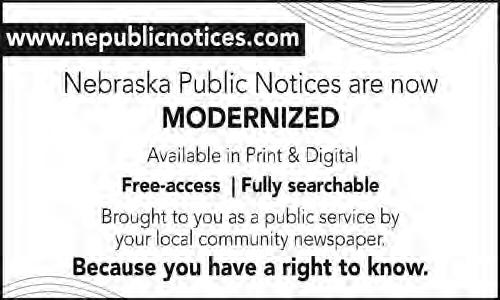
AFFORDABLE PRESS Release service. Send your message to 155 newspapers across Nebraska for one low price! Call 1-800-369-2850 or www.nebpress.com for more details.
GUN SHOW: October 14-16 Westfair, Council Bluffs, IA Fri 3-8pm, Sat. 9am-5pm, Sun. 9am-3pm. $7 (under 14 FREE). More info: 563608-4401 www.marvkrauspromotions.net.
DOES YOUR basement or crawl space need some attention? Call Thrasher Foundation Repair! A permanent solution for waterproofing, failing foundations, sinking concrete and nasty crawl spaces. FREE Inspection & Same Day Estimate. $250 off ANY project with code GET250. Call 1-844-958-3431.
SOCIAL SECURITY Disability Benefits. Unable to work? Denied benefits? We Can Help! Strong, recent work history needed. Call to start your application or appeal today! 866-563-0161 [Steppacher Law Offices LLC Principal Office: 224 Adams Ave Scranton PA 18503]
DIRECTV Stream - Carries the Most Local MLB Games! CHOICE Package, $89.99/mo for 12 months. Stream on 20 devices in your home at once. HBO Max included for 3 mos (w/CHOICE Package or higher.) No annual contract, no hidden fees! Some restrictions apply. Call IVS 1-855-763-0124.

PORTABLE OXYGEN Concentrator? May be covered by Medicare! Reclaim independence and mobility with the compact design and long-lasting battery of Inogen One. Free information kit! Call 855385-3580.
PUT
your TV Ears and hear TV with unmatched clarity. TV Ears
were originally $129.95 - NOW WITH THIS SPECIAL OFFER are only $59.95 with code MCB59! Call 1-833-926-4154.
STANDARD Walk-In Tubs. Buy from a brand you trust. Patented Quick-Drain® technology. 44 hydrotherapy jets. Lifetime warranty on tub and installation! FREE in-home consultation at your convenience. Limited time offer - $1,500 in savings includes a FREE right-height toilet. Call 1-833-511-0960.
GENERAC PWRcell, a solar plus battery storage system. Save money, reduce your reliance on the grid, prepare for power outages and power your home. Full installation services available. $0 Down Financing Option. Request a Free, no
833-513-0190.


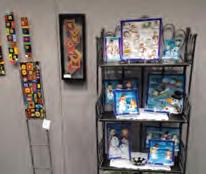




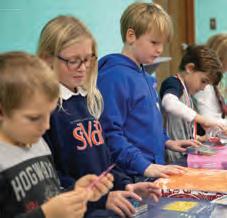


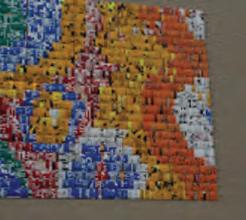
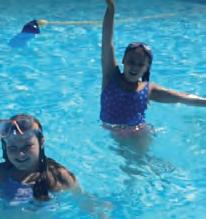


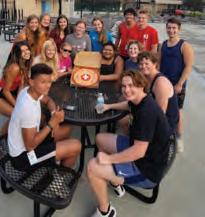

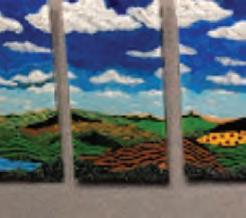



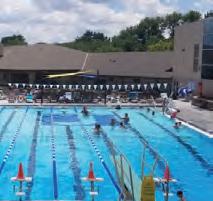





















“Anyone can build a building, but it’s the Community that makes it special.”
—Michael Staenberg